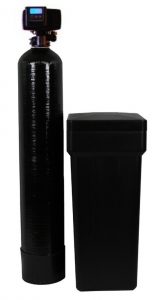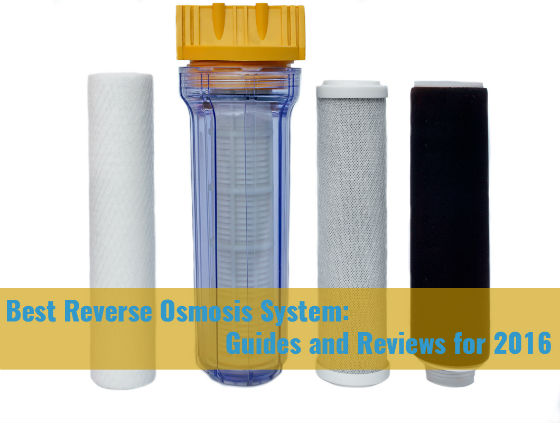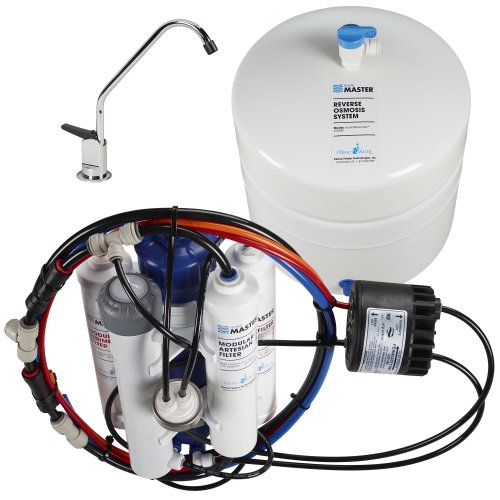Water and Its Unparalleled Importance
The vitality of water for human life is undisputed. The indispensable nature of water is often overlooked by giving more importance to industrialisation and other development strategies. With the alarming effects of pollution and contamination in place, people are finding it difficult to get access to quality water that is completely fit for use. The majority of the population around the world are having more access to hard water rather than soft water. Hard water has high concentrations of minerals when compared to normal water. Hard water is not known to pose a health hazard but dealing with it in the household and otherwise is quite difficult. Hard water often increases your cost of living among other things. One of the most efficient ways of converting hard water to soft water is by using a water softener. With a large number of water softeners available in the market, it is of high importance that you understand what does water softener do and the benefits of soft water over hard water. Let us see how a water softener will help you reap the benefits of soft water over hard water.
When to Buy a Water Softener
Now, the big question arises as to when to decide that you need to go for a water softener. The alarm for the need of a water softener is often raised by your house hold devices itself. Look out for these common signs like scale build up on your house hold appliances, a dry and itchy skin, grey and faded clothes, skyrocketing water bills, a plumbing which requires constant repair, stains on stinks and bath tubs and brittle glassware. Though these are the most common signs, there might be certain signs that are not easily visible. Water softener helps you to expand the lifespan of your appliances and does not let your expense creep out your budget. Soft water makes your life easy in simple ways like increasing the life span of your clothes, house hold items and even enhancing the texture of your skin.
What is Hard Water?
Before we understand more about water softeners, let us see what is hard water and the disadvantages associated with it. The ground water, when it percolates through the earth’s surface, absorbs minerals like calcium and magnesium. Hard water has high concentration of these minerals compared to normal water. Hard water poses problem in households as well as industries like textile, sugar, paper etc. You might have noticed that in some places soap doesn’t easily lather with water where as in some places it does. This is because of the fact that the former is hard water and the latter is soft water. In the presence of hard water the soap gives scum and very little lather. Hard water is also known to clog pipes. Dealing with it is often a nuisance among other things.
Hard Water and Limescale
Hard water increases the chances of limescale deposits in households and industries alike. The term limescale is an unpleasant one for people who lives in areas with hard water. As hard water has high concentrations of minerals like magnesium and calcium, when the water evaporates it leaves behind calcium carbonate deposits, commonly known as limescale. The white crust, which is nothing but the limescale deposits accumulates quickly and can be found on any surface that is in contact with hard water. These deposits sticks very fast and is difficult to get rid of. It gives rise to blockage of pipes, reduced efficiency of water heaters which in turn gives rise to higher energy consumption as it takes more time to boil water. Limescale leads to reduced durability. The house hold appliances also becomes less visually attractive reducing the charm of your home.
Measure of Water Hardness
Water hardness is measured in parts per million or ppm. The measure of ppm in water is the mass of a contaminate or a chemical that is present per unit volume of water. The total hardness of water is primarily calculated as the sum of calcium and magnesium in water. Typically, the hardness of hard water is in the range of 120-180 ppm whereas for soft water it is less than 60 ppm, even though various organisations around the world use slightly different measures for the same. In order to measure the hardness of water at home you can go for a test kit which comes with a detailed manual on how to measure the hardness.
What Does a Water Softener Do?
Now that we have seen the harmful impacts that hard water has on our daily life, let us look at what does water softener do. In simple terms, a water softener helps to remove impurities like calcium and magnesium. Water softener is a mechanical device fixed to the water supply system. Irrespective of the different kind of water softeners available in the market, all of it works on one single principle of ion exchange. Ion exchange is the process of removing the calcium and magnesium for some other minerals, in most cases sodium. A mineral tank filled with polystyrene beads is located in the heart of a water softener. The positive charges found in calcium and magnesium is traded for the negative charges founded in the beads. When the hard water passes through the mineral tank, the minerals will get attached to the beads replacing sodium ions. The sodium ions pass to the water. The resulting soft water flows out of the tank to the building for your use. The water can be collected in tapes and can be used for your daily needs. You will start to realise the benefit of using soft water over hard water as you go.
Regenerating the Water Softener
A water softener needs to recharge itself periodically. The recharge or the regenerating cycle is started once the beads are saturated with magnesium and calcium. The first phase is known as the backwash phase in which water flow is reversed and the dirt is flushed out of the tank. The second phase is the recharge phase in which the brine solution rich in sodium is carried from the brine tank to the mineral tank. The beads collect the sodium, replacing the magnesium and calcium deposits which goes into the drain. At the end of this phase. the mineral tank is cleared off the brine solution and refilling of the brine tank happens. The presence of a regenerating system in most of the water softeners makes use of an electric timer, a computer or a mechanical water meter to automate the process. Some people also go for manual recharge cycle, which is often undertaken as a part of maintenance or when the water shows the characteristics of hard water. The frequency of recharge is determined by the hardness of water and amount of water used. The recharge of water softener doesn’t consume much energy either, which makes it an energy efficient way to adopt.
Impacts of Softened Water on Health
Now that the question of what does water softener do is answered let us look at the impacts of softened water on our health. It is an often debated topic as to whether drinking softened water is safe to health. Softened water is not proven to be bad for your health. The amount of sodium in softened water that you drink depends on the hardness prevalent in water. But softened water is not salt water. In fact, softened water consists of all the natural minerals that we require in our diet. Considering the fact the most of your sodium intake comes from your food intake, only less than three percent is believed to come from softened water. For people who want to eliminate the sodium content in their softened water, reverse osmosis is a much recommended method. A reverse osmosis system can be installed with the water softener to ensure that you have sodium free softened water. Having said that hard water is not believed to have an adverse affect on our health either. So, it is on you to decide whether to go for hard water or soft water for consumption keeping in mind what suits your health the best.
Pointers for Purchasing Decision
With the presence of lot of water softeners in the market, making a purchasing decision regarding the same is quite difficult. First, determine the hardness of water buy a test kit or contact your municipality. Then, in order to determine the size of the water softener you need to get, multiply the number of members in your house with the gallons of water they use. Multiply this with the hardness of water. In this age where, companies go an extra mile to make their customer experience hassle free, contact a water softener company and a representative will answer all your questions. Durability of a water softener is an important factor to consider when you make your purchasing decision. The lifespan of a water softener is usually very long, but it definitely depends on the quality of water softener that you buy. The average lifespan of a water softener is about 10 to 15 years, but they can last up to 20 years as well. So, when you purchase a water softener, let the health of your family, the durability and the price guide you to make the decision.
Myths Related to Water Softeners
While, there are many benefits of using a water softener, many people get carried away by the myths surrounding water softeners. The myth that water softeners make the water salty is in place as the magnesium and calcium ion is replaced with sodium ions. Another one is only the use of salt free conditioners helps to soften water. Some people also believe that water softeners waste salt, energy and water. The two other prevalent myths are that water softeners remove the good minerals from water and are bad for septic systems. The above stated myths are often a deterrent to many while choosing hard water over soft water. The fact that water softeners use green technology is often side lined by these myths. The benefits of soft water, including the less amount of waste produced, helps us to contribute to a cleaner and greener environment. After all aren’t we all aiming for a greener environment which is able to sustain us for generations to come.
Benefits of Water Softening
The benefits of water softening are many. Water softening helps the devices at our home last longer. It also helps to reduce the amount of soaps and detergents used which in turn is better for the environment. Soft water makes your appliances stainless. It also helps to save time by heating water quickly. Water softener is energy efficient and only uses the energy required to run a digital alarm clock. Soft water helps to increase the life span of household devices like laundry machines, heating systems, air conditioners and other appliances based on water. Using soft water makes your skin soft. Above all, soft water helps to keep the environment around you healthy and finer to live. Realising these benefits and keeping the myths related to soft water at bay will help you in making your life more easier giving you more time with your family and friends rather than managing your household chores
Say Yes to an Enhanced Lifestyle
In the present age, access to water of great quality has become a privilege. Even though there are no hazards caused by hard water, managing the daily chores with the help of it is difficult. In turn, soft water is much more beneficial and is more hassle free to manage. With the help of devices like water softeners, which purifies the hard water, it has become easily achievable as well. So, if you are living in an area with hard water, make your life easy by buying a water softener. Soft water also helps you to save time, energy and money. When you make your purchasing decision, keep the pointers in mind to get the best one suited for the needs of your family. When you have an easy, quick and safe option to make the hard water soft, why delay in making water softener a part of your household. Say yes to an enhanced lifestyle by keeping your budget at bay and of course to water of enhanced quality.
Ready to by a water softener? Read our reviews here




Leave a Reply